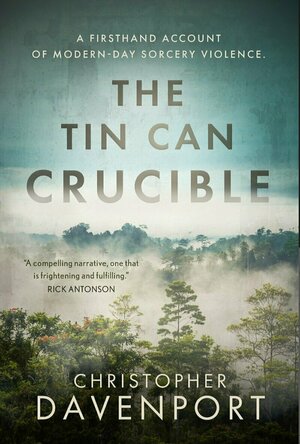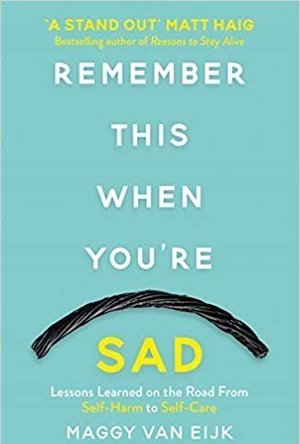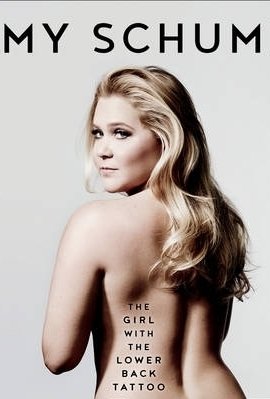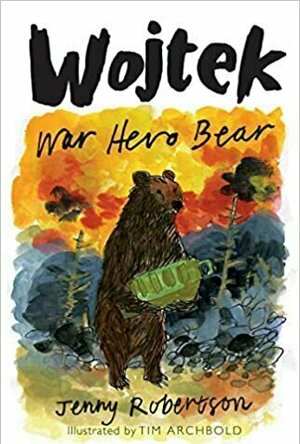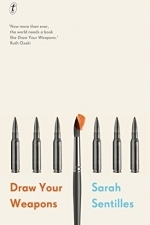
Draw Your Weapons
Book
A single book might not change the world. But this utterly original meditation on art and war might...
philosophy social sciences
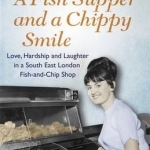
A Fish Supper and a Chippy Smile: Love, Hardship and Laughter in a South East London Fish-and-Chip Shop
Book
'Oi, Hilda, the sign outside says you're frying today but I ain't seeing nothing done in ere!' The...
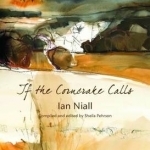
If the Corncrake Calls
Ian Niall, Sheila Pehrson and Barbara Greg (Illustrator)
Book
When the Scottish writer John McNeillie died on the 24th June 2002 aged 85, he left behind a legacy...
ClareR (6067 KP) rated The Tin Can Crucible in Books
Dec 29, 2020
Even with all the detailed descriptions, I still felt it was difficult to imagine what life must have been like, living in one of these villages. It’s so far beyond my own experiences, that even with Christophers detailed explanations of village life, I couldn’t comprehend how these people lived. Huts with dirt on the floor, men and women aged before their time, no running water or, I assume, sewage systems. I’m a bit of a details person, and I’ve come to believe over the last 40 years or so, that toilets and running water are up there in my list of top priorities.
The real crux of this novel though, is the death of the elder - a man that Christopher gets along with very well, and had spoken to frequently. Then he dies. Whilst Christopher is sleeping, two women are imprisoned and accused of killing the elder using witchcraft. They are shut away together until one or the other turns the other woman in. If they don’t, then they both die. This was clearly a situation where someone was going to lose out. And by ‘lose out’, I mean ‘die’. Christopher is understandably upset by this - who can blame him? But at the same time, there’s nothing he can do. He’s in another country where this kind of behaviour, whilst not frequent, is accepted. You can feel his disappointment in his foster family radiating off the page, and also his helplessness. I couldn’t understand how he could stay with them though.
I think the real lesson for both the author and the reader, was that these were not people who could be changed. They were firmly entrenched in their own culture and beliefs.
Many thanks to The Pigeonhole and Christopher Davenport for serialising this informative and emotional memoir. This is what reading is about: learning something new, completely out of your own sphere of knowledge. This book certainly delivers on that.
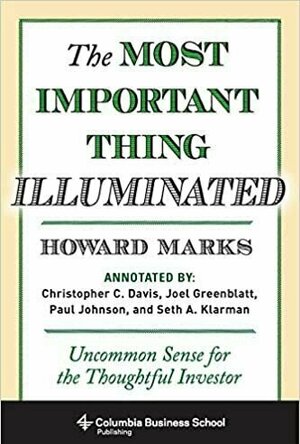
The Most Important Thing Illuminated
Book
Howard Marks's The Most Important Thing distilled the investing insight of his celebrated client...
graveyardgremlin (7194 KP) rated Happy Hour of the Damned (Amanda Feral, #1) in Books
Feb 15, 2019
I loved the snarkiness, the footnotes (how many fiction authors actually do that?), the memoir-style writing, the cleverness of it all, it's a very good book. So why didn't I give it a higher rating, you may be thinking. Or maybe you're not. Whatever. Well, it did lose me a couple places and the plot meandered a bit in the beginning, and I'm still not sure what the master plot entailed (or is it entrailed? LMAO :D) exactly, as the plot did get a bit confusing towards the end. That could have just been me, I'm not the brightest at times. However, I think I did get the gist of the whole thing, so I wasn't left completely confused. In addition, I didn't find myself absorbed in the book, meaning I could put it down without withdrawal symptoms, so that brings my rating down slightly. I found the best thing to do with HAPPY HOUR OF THE DAMNED was to just let the book take me for the bizarre and fun ride the author had in store for the readers.
I'm sorry to hear that the series is in trouble, as it's much better than a lot of urban fantasy out there. We snarks of the world need these brainy reads (the fun kind) to survive, so in a way, we're zombies too. You may be wondering, "What can I do to help a good author out?" Well, go buy it! But only if you don't mind foul language, queasy and disgustingly gory scenes and imagery, sex in all it's kinkiness (which is mostly mentioned in passing), brand name designers, in-the-gutter-humor and more! All for the low, low price of $6.99. Have your credit card handy, operators are standing by - okay, I'm done with my infomercial sales pitch now. But really, if you do mind the aforementioned descriptions of what's covered inside, why are you looking at a zombie book anyway?
3.75 stars - just because I can.
Sam (74 KP) rated Remember This When You're Sad in Books
Mar 27, 2019
Remember This When You’re Sad is part memoir, part self-help, based on the experiences of former Buzzfeed Social Media Editor and current BBC Social Media Manager Maggy Van Eijk. It focuses on her anxiety, depression, panic attacks and disassociation and how she gets through each day with them.
I really loved reading this. I never really read many self-help books before Matt Haig’s Reasons To Stay Alive, but now I really love them and enjoy that they make you feel like you’re being cuddled while reading them.
This book managed to be absolutely hilarious in places while somehow also remaining serious and to the point. It spoke about anxiety in the same way that I address mine. I wouldn’t have gotten through so much if it hadn’t have been for being able to laugh at it sometimes.
It doesn’t preach a miracle cure to mental illnesses. Instead, Maggy Van Eijk talks through different ways of getting through your worst points, from telling you the best places to have a good cry to explaining how to ‘Club Penguin’ your problems. It’s the perfect mental health book for my generation.
I loved how the book is split into lots of lists, and the chapters are split so you can easily flick to the one you need the most at the time you need it.
Maggy Van Eijk even went into the detail of discussing people’s reactions when you talk about your mental health and it made me think about something that happened when I was at college that I had forgotten about until now. I’ve always been open about my mental health, especially when it was much worse when I was in college. I spoke to a girl I knew about it and she said ‘But why are you so open about it? You don’t talk about things like that.’ People’s reactions in the book were quite similar to that.
It’s sad to see that this is a normal thing that people think, but at the same time, it’s not shocking. There is still a massive stigma around mental health conditions, which is why I love books like this that talk openly about it.
This is definitely one of my favourite mental health books. I’ve already had to buy it for a friend and I’ve got two friends waiting to borrow my copy. I’ve never read a book that has been so much like talking to a friend.
Kristy H (1252 KP) rated The Girl with the Lower Back Tattoo in Books
Feb 1, 2018
I found this book to be a refreshing and engaging celebrity book. It carried a surprising depth. I don't know a ton about Schumer, but loved <i>Trainwreck</i> and have had a crush on her for ages. That crush has only intensified upon reading her book, as I discovered several similarities between us: introverts who love hotdogs and have complicated relationships with their mothers, who both internalize stress to the point where it makes us sick. We're a match made in heaven! But, seriously, Schumer is an excellent writer, and her book is an easy read, with well-written and wonderful essays that range from humorous to serious (and often both).
Her book avoided all of my usual celebrity autobiography/memoir/essay pet peeves. In this book, we really learn about Schumer, instead of just a few token stories. I was fascinated to hear about her career trajectory: you get a great look into how hard she worked in her early years as a comedian. In addition, we actually get a lot of insight into her early life-- her childhood and teenage years. What I love is that she comes across as a real human being, instead of giving us a book that is simply full of polished, trite jokes and well-worn stories.
In fact, while parts of the book make you laugh out loud, other places make you empathize with Schumer. The book is funny, but not too funny or fake funny. And it's serious without preaching. She covers topics such as sexual assault, gun control, her father's MS, her relationship with her parents, and other serious childhood experiences that molded her, with a realism that is refreshing. Sure, there are a few "woe is me" moments about how hard it is to be a celebrity, or what it's like to have money, but they are few and far between. By the end, I admired Amy even more as a person and a comedian, and my crush will continue on stronger than ever.
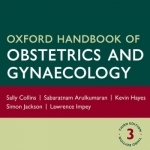
Oxford Handbook of Obstetrics and Gynaecology
Medical and Book
App
By downloading this “frame” app you will be given the opportunity to PURCHASE the latest version...
BookInspector (124 KP) rated Wojtek: War Hero Bear in Books
Sep 24, 2020
Well, I think this book is classified as a children’s read, but I noticed, that you should have pretty good knowledge in history, in order to understand what is going on in here. I picked up this book after reading a Holocaust memoir, so it was a very nice continuation to my reading theme. 😀
When Piotr, a polish soldier, discovers an abandoned bear cub, he decides to take him along on his journey to Palestine. But he discovers, that after losing his family to the Soviet regimen, Piotr feels very lonely, and Wojtek’s presence comforts not only him but other soldiers as well. I really liked the characters in this book, I found them charming, warm and pleasant personalities. I really enjoyed that author used multiple perspectives in this novel, I really loved reading Wojtek’s parts, I found them cute and funny. I loved the parts, were author shared Piotr’s story with the readers. It is a very sad story involving concentration camps and betrayal, but these parts made the whole book more complex and more interesting for me. (as an adult with some knowledge of history…)
The narrative follows the army squad accompanied by Wojtek, through their journeys in the middle east, and is very fun to read. I have to agree, Wojtek is a very funny and smart bear, and I loved all his mishaps. The author has done a great research for this novel, however, sometimes it felt like reading a history book, filled with war terminology and facts. Another aspect I really enjoyed was the pictures, Tim Archbold did a great job on them. I am glad that every chapter had a picture, and I was curious to find out, which scene from that chapter he decided to illustrate. 🙂
The writing style of this book was pretty straightforward, and it was quite easy and enjoyable for me. The chapters were a decent length and the pictures helped to make it more entertaining and playful. I did enjoy the setting of this book, it changes continuously, bringing in different scenery and atmosphere. I think that the ending was very realistic and believable for this novel, but some aspects left me a little bit upset with Piotr. So, to conclude, It is a great read for children as well as adults, especially if your child is learning about WWII, I think it would widen up their knowledge and you would have great fun reading it as well. Win-win situation. 😀 This novel has amusing characters as well as lots of serious and fun moments, and I do recommend to give this book a try. Enjoy 🙂
